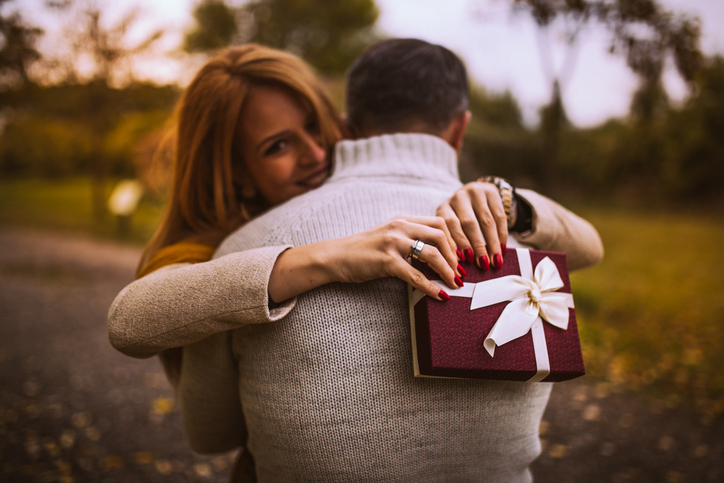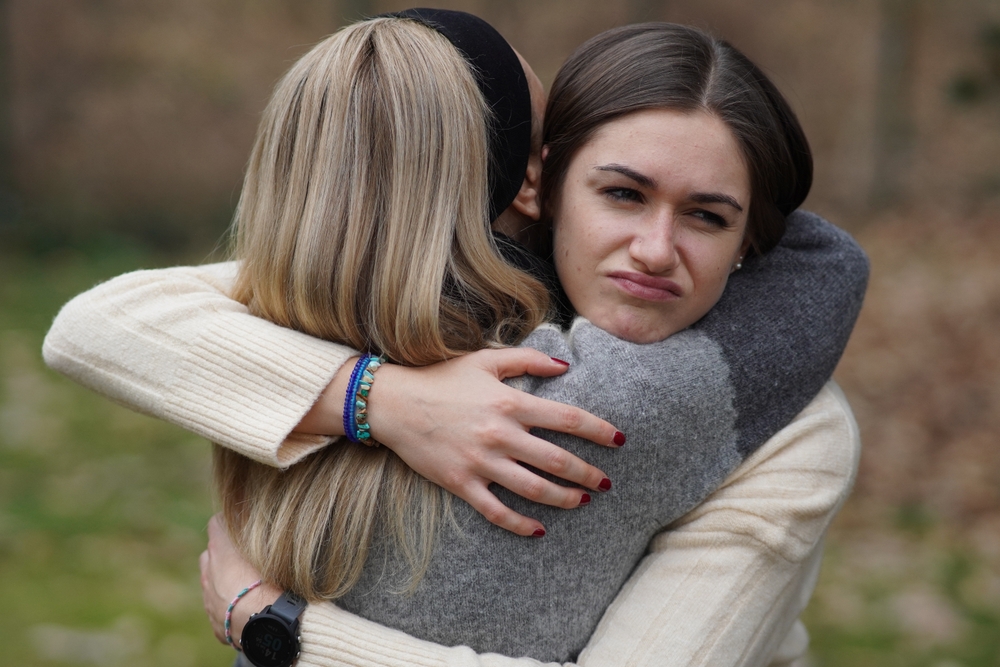We all carry expectations of others, sometimes without even consciously realizing it. But when people inevitably fall short (as all humans do!), we end up feeling disappointed, frustrated, or even resentful. Letting go of some of these unrealistic expectations paves the way for healthier relationships and way less stress all around!
1. You shouldn’t expect people to read your mind.

We all secretly wish our partners, friends, and family could magically intuit our needs without saying a word, but that’s just setting yourself up for resentment and miscommunication! Clear, direct communication is always more effective than hoping someone will magically figure out what you want or how you’re feeling.
2. You shouldn’t expect people to change for you.

People can definitely grow and evolve over time, but that change has to be driven from within themselves, not by you, according to Psychology Today. Entering any relationship hoping you’ll be the one to “fix” someone is unfair to both of you. The healthier approach is accepting people as they currently are, or recognizing a fundamental incompatibility and moving on if necessary.
3. You shouldn’t expect people to always agree with you.

It’s natural to gravitate towards like-minded people, but differences in opinions and perspectives are inevitable. Respect that others have a right to see the world differently, and be open to engaging in respectful debate. You might even learn something new instead of assuming you have all the right answers!
4. You shouldn’t expect people to never let you down.

Everyone makes mistakes – they forget things, say the wrong thing at the wrong time, or misjudge a situation. It’s part of being human! When this happens (and it will), try to focus on the bigger picture of their behavior. Is this a rare slip-up, or part of a concerning pattern? According to Mayo Clinic, forgiveness is important not just for the other person, but for you.
5. You shouldn’t expect other people to be perfect.

Holding people to impossible standards of perfection is a recipe for constant disappointment. Nobody can be everything to you all the time, and frankly, it’s exhausting to try! Allow your loved ones to be flawed, complex humans while still being worthy of your love and respect.
6. You shouldn’t expect people to be constantly available for you.

Everyone needs alone time, downtime, and the space to handle their own lives and responsibilities. Expecting your partner, best friend, or family members to be instantly responsive or drop everything for you is unrealistic and can be suffocating. Healthy relationships have breathing room and recognize individual needs.
7. You shouldn’t expect validation or compliments all the time.

It’s always nice to hear positive things about yourself, but it can’t be the foundation of your self-esteem. You need to genuinely like yourself first! Others noticing your awesomeness is a bonus, but it’s unfair (and frankly exhausting) to constantly demand that from the people around you.
8. You shouldn’t expect them to always “get” your sense of humor.

Sometimes your joke falls completely flat, or your sarcastic comment totally flies over someone’s head. It happens! Humor is subjective, and what you find hilarious might just be confusing to someone else. Don’t take it personally, just switch gears and find a different topic of conversation.
9. You shouldn’t expect them to like everything you like.

It’s great to find people with shared interests, but expecting a full overlap is unrealistic and frankly, kind of boring! Let your partner love trashy reality TV, or your friend to be obsessed with a band you can’t stand. Differences keep things interesting, and prevent you from living in a bubble of total sameness.
10. You shouldn’t expect grand gestures all the time.

Romance isn’t just about elaborate dates and expensive gifts. Often, the everyday acts of love matter far more: a “thinking of you” text out of the blue, them making dinner, or them doing a chore you hate. Don’t get so caught up in the fairytale gestures that you undervalue those small, consistent expressions of love.
11. You shouldn’t expect people to apologize even when they should.

We all crave that moment of vindication when someone who wronged us owns up to their actions. Unfortunately, sometimes the apology never comes. Holding out for it keeps you stuck in a cycle of anger and resentment, delaying your ability to heal. Forgive for yourself (which doesn’t mean excusing their behavior), and move on.
12. You shouldn’t expect immediate forgiveness from people.

On the flip side, if you’ve messed up, remember that rebuilding trust takes time. Earning back someone’s forgiveness requires consistent good behavior over time, not just a quick “sorry” and expecting things to go back to normal. Be patient, give the person space to heal, and show them you’re truly remorseful.
13. You shouldn’t expect every disagreement to be resolved.

Sometimes, you have to simply agree to disagree, and that’s okay, Psychology Today notes. Not every argument or difference of opinion needs a perfect, tidy resolution. Learning to respectfully coexist even on topics you feel passionately about is a sign of healthy communication within any kind of relationship.
14. You shouldn’t expect instant replies at all times.

People have their own lives, schedules, and responsibilities beyond the constant pull of their phones. Demanding immediate replies to non-urgent messages creates unnecessary pressure and can make communication feel tense. Relax, trust that they’ll get back to you when they can, and focus on something else in the meantime.
15. You shouldn’t expect people to prioritize your needs above their own.

It’s great to be supportive and helpful towards those you care about, but there’s a fine line between that and letting yourself be used. Don’t always expect others to drop their own needs or plans to accommodate yours. Healthy relationships strike a healthy balance, and set boundaries when needed.
16. You shouldn’t expect them to never hurt your feelings.

Even those with the best intentions sometimes say the wrong thing at the wrong time, or their actions have unintended painful consequences. If you assume every misstep is malicious, you’ll always be on the defensive. Give people the benefit of the doubt when possible, and prioritize open communication to address unintentional hurts.
17. You shouldn’t expect people to stay the same forever.

People grow, change, and evolve over time – it’s the way of life. That friend moving to a new city, or your sibling getting a big promotion will naturally shift as their life changes. It’s okay to feel a bit wistful about the past, but don’t try to freeze them in time – wish them well, and let your relationship evolve alongside their growth.
18. You shouldn’t expect anyone else to complete you.

That “you complete me” rom-com trope is super misleading. Only YOU can make yourself truly happy and whole. Expecting a partner, friend, or anyone else to fill some existential void inside you is a recipe for codependency, not healthy love. Work on finding happiness within yourself first!








